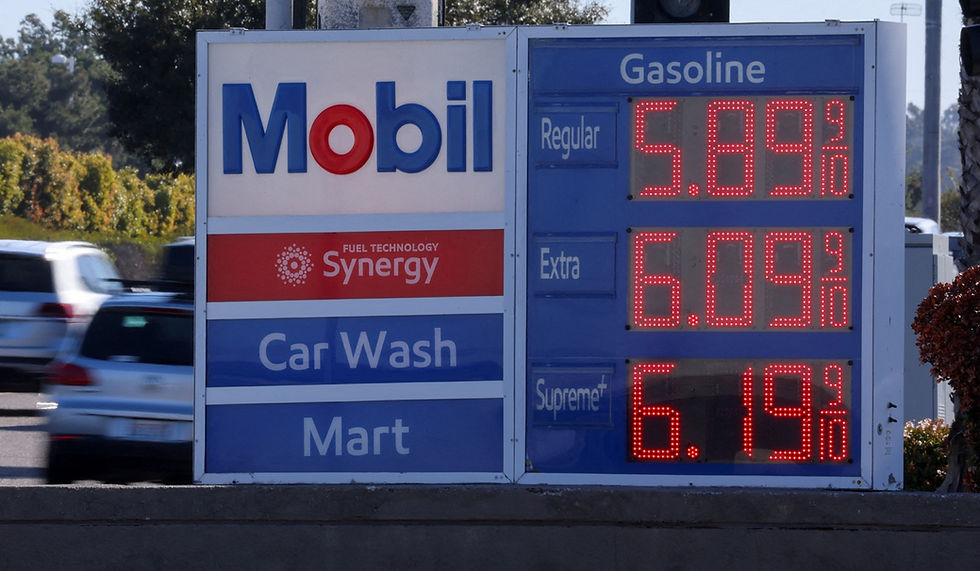📈 Inflation Accelerates Again, Soars to Four-Decade High at 7.9%
- truth81
- Mar 11, 2022
- 2 min read
March 10, 2022
The pace of inflation accelerated again last month, hitting the highest level in four decades.
The Consumer Price Index, a major inflation gauge measuring the cost of the average household basket of goods, came in at 7.9 percent over the last 12-month period ending in February, without seasonal adjustments, the Bureau of Labor Statistics reported Thursday.

Inflation surged 0.8 percent in February alone, on a seasonally adjusted basis, after rising 0.6 percent in January. Increases in the price of gasoline, housing, and food contributed the most to the spike. Gasoline especially drove the trend, climbing 6.6 percent in February and accounting for nearly a third of the all items monthly increase, which can be at least partially attributed to the growing energy crisis related to Russia’s invasion of Ukraine and the western economic response.
The Core CPI, excluding food and energy which tend to be volatile components that can exaggerate the effects of inflation, still rose 0.5 percent in February following a 0.6 percent increase the previous month. The 12-month increase in inflation is now the steepest since the period ending January 1982.
Persistent supply and demand imbalances left over from the pandemic, as well as the war in Ukraine and western countries’ sanctions retaliation against Russia, are pushing up the price of energy and other commodities. The Biden administration has come under fire for winding down domestic energy production, starting with the cancellation of the Keystone Pipeline XL project as one of the president’s first orders of business, leaving the U.S. beholden to quasi-dictatorships abroad for oil and gas. White House press secretary Jen Psaki insisted last week that at the heart of reducing dependency on foreign energy is investing in alternative, green energy here. Russia has been accused of undermining fossil-fuel production in the West, stoking climate change alarmism via woke capitalism, to make it more reliant on Russian energy.
SOURCE: National Review

Comments